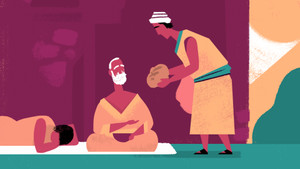
4:43


What does it mean to love God with all of your strength? In this final installment of our Shema series, we explore the Hebrew word me'od, which we translate as "strength" in the Shema. But this is only one of the many ways this rich Hebrew word can be translated.

Episode 1
Shema / Listen

Episode 2
YHWH / LORD

Episode 3
Ahavah / Love

Episode 4
Lev / Heart

Episode 5
Nephesh / Soul

Episode 6
Meod / Strength